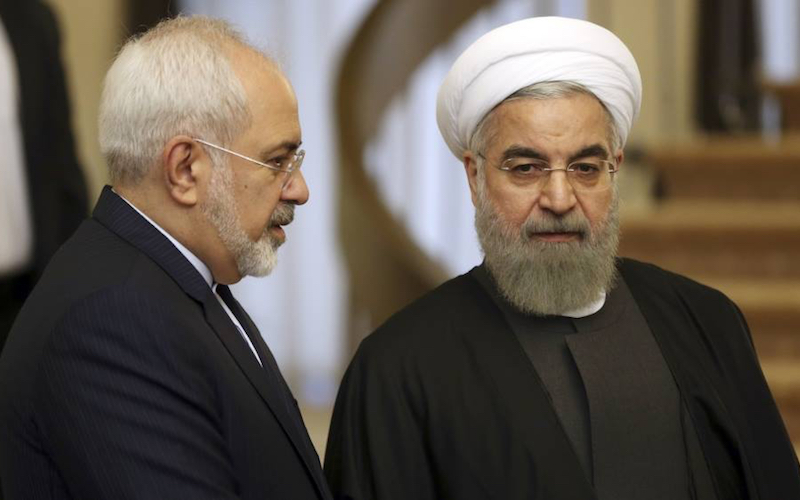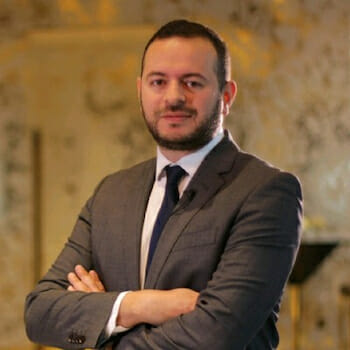
The Limits of the Improbable Iran-Algeria Partnership
Iran’s second-largest car manufacturer, Saipa, recently confirmed and had signed a memorandum of understanding with Algerian car manufacturer Tahkout. The agreement, which includes plans to jointly manufacture automobile spare parts and build a plant in Algeria with capacity to turn out 20,000 Saipa vehicles a year, is a significant milestone in Algeria’s attempt to diversify its economy. But, although Iran could be a valuable economic partner and counterweight to undesired influence, Algeria fears its industrial ambitions could endanger internal stability and existing strategic international alliances. The North African country’s conundrum is not limited to the economy. Since the 2015 P5+1-Iran nuclear agreement and subsequent partial lifting of international sanctions, Iran has expanded its initiatives to create ties with Algeria in culture and counterterrorism, among other fields.
Like other countries, Iran is using its cultural soft power to reinforce ties with the Maghreb’s first economy. However, it faces strong opposition from Salafist groups and Islamist political parties that have accused Iran of spreading Shiite ideology. By way of example, in January 2016, Iran’s cultural attache to Algeria, Amir El Moussaoui, was the target of a negative Twitter campaign after he made multiple visits to Sufi schools.
Those criticizing him have also accused the Algerian government of unwarranted tolerance at the risk of sectarianism. Such was the level of critique that Iranian President Hassan Rouhani had to postpone an official trip to Algeria after another Twitter campaign called on authorities to cancel the visit in solidarity with the people of Syria, and as a way of denouncing Iran’s meddling in local politics. While the change in schedule was probably more related to the health of Algeria’s Abdelaziz Bouteflika, it appeared as a victory for Salafi movements.
Another example of Algeria’s reluctance to engage with Iran emerged after Iranian Minister of Culture and Islamic Guidance Reza Salhi Amiri visited Algiers in late March 2017, where he announced the signing of a bilateral agreement to fight “Takfirism.” Shortly after the declaration, Algeria’s Ministry of Foreign Affairs denied the news as “unfounded” and stated the meeting had been “an opportunity to express Algeria’s wish for Iran to play a positive role in [the] region and to be a factor of stability and balance in the Middle East and the Arab Gulf.”
While their bilateral relationship has been marred by misunderstandings, Iran and Algeria have developed a certain level of military co-operation since the restoration of diplomatic ties in 2000. With the memories of a decade-long fight against an Islamist insurgency under an unofficial arms embargo fresh on their minds, Algerian officials saw fit to follow Iran’s efforts to develop an autonomous defense industry despite international sanctions and pressure. In 2002, after a visit to Tehran by Algeria’s military chief of staff, the countries signed a memorandum to improve military co-operation specifically in logistics and training.
The level of bilateral co-operation and number of diplomatic visits increased, culminating in Iranian Defence Minister Ali Shamkhani’s trip to Algeria in 2004. However, efforts gradually plateaued due to the strengthening of Western sanctions against Iran and rising oil prices, both of which allowed Algeria to modernize its army with backing from Russia – its traditional ally. Despite similar views on Bashar Al Assad’s role in a stable Syria, Iran’s intervention in support of the regime led to a restriction of bilateral relations with Algeria to cultural and traditional diplomatic exchanges only.
Both countries have differing perceptions of their ties. With its oil-dependent economy, Algeria is determined to find new partners that will support its diversification efforts. Here, Iran could provide ground for non-oil economic assistance in accordance with Algeria’s approach to south-south co-operation. Iranians, on the other hand, are seeking to expand relations with the North African country beyond that of a simple economic partnership. Iran views the Maghreb, in particular Algeria, as a launching pad towards the rest of Africa and as a battleground on which to face off with Saudi Arabia. Indeed, Iran considers the region as the underbelly of Saudi influence in the Arab world. Having Algeria on its side would be a diplomatic game changer.
While Algerian authorities have shown reluctance in developing relations with Iran, a section of society – and some of the country’s representatives – share Tehran’s views on a number of subjects, from the Palestinian-Israeli conflict to the fight against Sunni extremism. Algeria’s senate speaker even pointed out that “joining hands [with Iran] in the fight against terrorism could definitely lead to tangible outcomes.” It is, however, unrealistic to foresee the grand rapprochement between Africa and Iran that the Islamic Revolution has promoted since 1979. While Iran will most likely continue to pragmatically develop economic relations and cultural ties with Algeria, such friendliness will only be possible if Iran settles its dispute with Saudi Arabia and negotiates the conditions of a modus vivendi with the rest of the GCC.


